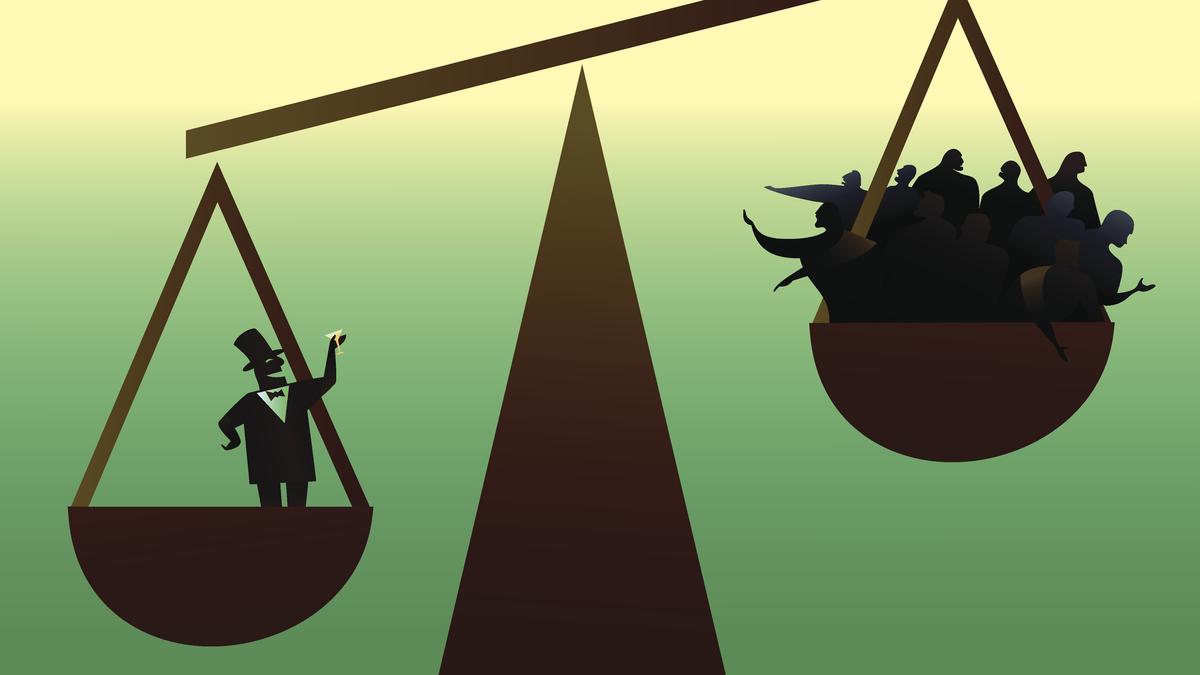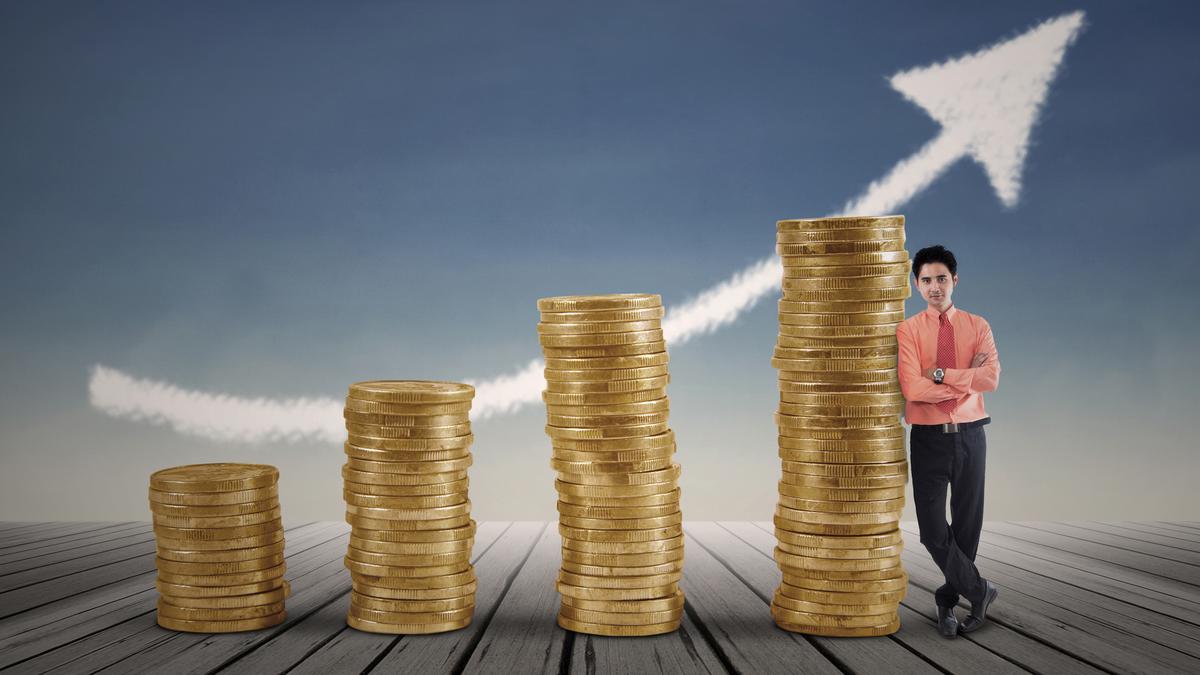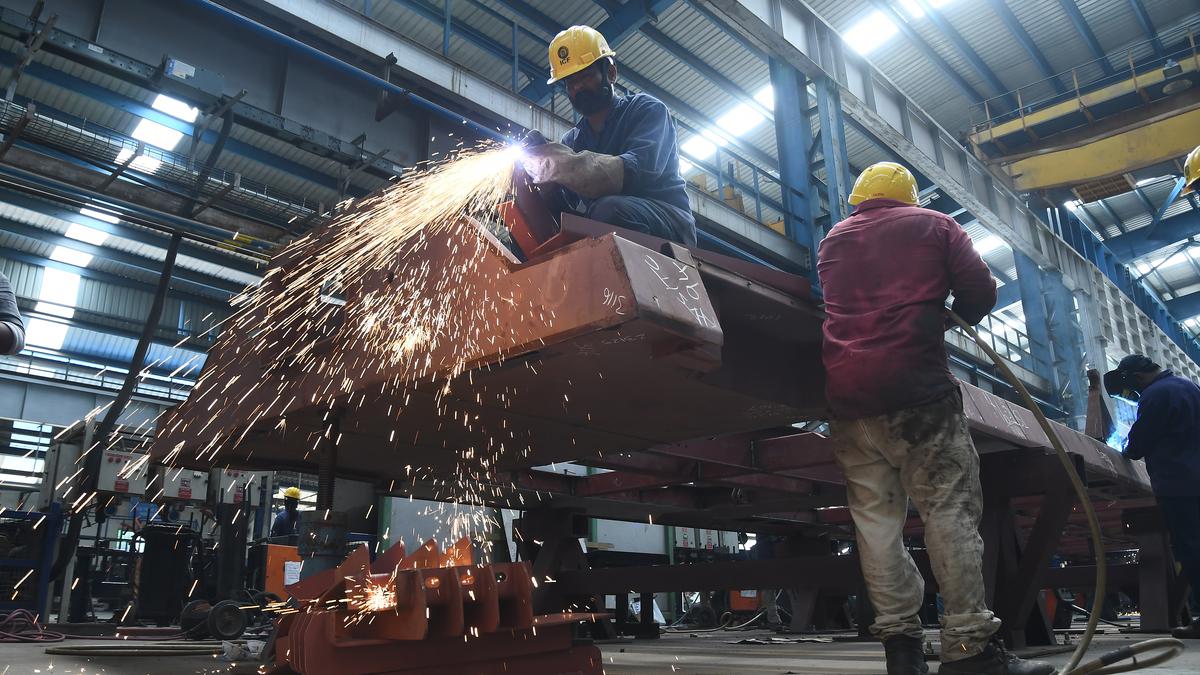For representative purposes.
| Photo Credit: iStockphoto
Rahul Gandhi’s statements regarding redistribution — and the polarising rebuttal of Prime Minister Narendra Modi — have brought the topic of inequality to the forefront. Researchers from the Paris School of Economics have shown inequality in modern India to be greater than colonial times.
Several argue that inequality harms democratic processes. Some inequality, others argue, is actually beneficial, since it acts as an incentive to entrepreneurs to start businesses, thereby increasing employment and welfare for others.
This view is mistaken, for inequality can have deleterious economic effects as well. Consider one form of inequality, that of concentration of monopoly power amongst capital relative to labour. This can have negative effects on consumption, welfare, and growth. If done properly, wealth taxes and distribution can have positive effects.
Monopoly power and consumption
Billionaires draw their wealth from monopoly. Their business groups are dominant players in their specific market. This allows them to set prices instead of being determined by the market. The extent of mark-ups above the cost of production is determined by their monopoly power. Thus, for any given level of money wages, real wages — which determine purchasing power — are lower in economies with strong monopolies.
These monopoly effects are currently being experienced as the cost-of-living crises affecting the developed economies. The phenomenon of “greedflation”, or companies raising prices to increase profit margins in the wake of multiple demand-and-supply shocks due to the pandemic, has been pointed to as contributing to high rates of inflation in the West. Textbook economics shows us that the profit-maximising level of output under a monopoly is less than under a competitive economy, implying a welfare loss. Thus, the presence of monopolies can lead to lower real wages and lower levels of output and investment.
Inequality and growth
Assume that a company decides to set up a new factory. Before the new capital stock is created, wages are paid out to workers to build it. The income of the workers is spent on purchasing goods, which increases the income of goods-sellers, whose increased income results in purchases of other goods, and so on. The total increase in the income of workers and goods-sellers is greater than the initial investment. This process is called the ‘multiplier’ effect, wherein investment raises incomes by a greater proportion than the initial investment.
When companies exercise market power, mark-ups and prices will be higher. Real wages of workers are lower, and they can only purchase lesser items. However companies, because of higher margins, will enjoy the same amount of profits from the sale of a lesser amount of goods. The increase in income from a given amount of investment will be lesser under monopoly because of reduced consumption power. Thus, investment will have a weaker effect on growth under monopoly while not affecting profits.
One can argue that consumption of the rich can help boost growth. While the absolute amount of consumption of the rich is more, they consume a smaller proportion of their incomes. The multiplier process depends on the proportion of consumption from incomes. An unequal economy will put lesser incomes in the hands of those with a greater propensity to consume, leading to weaker expansion in the economy.
Redistribution and growth
Some argue that the ‘cure’ of redistribution can prove more harmful than the disease of inequality by affecting job creation. Entrepreneurs would see reduced incentives for amassing wealth under a high-tax regime, resulting in a scale-back of investment and jobs.
One must make a distinction between wealth and profits. Investment occurs under the influence of future profit expectations, while wealth is accumulated past profits. As the Polish economist Michal Kalecki argued, taxes on wealth would not affect investment since it leaves expectations of future profits unchanged. For example, taxing Gautam Adani’s wealth will not affect investment since expected profits from airports depends on the demand for air-travel which is independent of the value of his wealth.
No doubt, the difficulty in converting profits into wealth may deter some business-owners from undertaking investment. But an economy with high expectations of profit would ensure businesses invest even if wealth is taxed. Redistribution can generate forces to spur growth even if some billionaires pull back on investment. For one, if wealth is redistributed and increases income, the multiplier process would become stronger. Businesses would be more willing to invest where purchasing power is strong. If monopolies are curtailed, then prices would be lower and real wages higher, leading to greater demand.
Consider Thomas Piketty’s proposal of taxing billionaire wealth and providing basic income. This might cause some to exit the economy, but can create a new class of entrepreneurs who can create start-ups, freed from the necessity of working for wages. Redistribution is not a silver bullet, and too high a rate of taxation can become a net drain on an economy. Used in conjunction with other policy measures, curtailing inequality can lead to a healthier economy.




